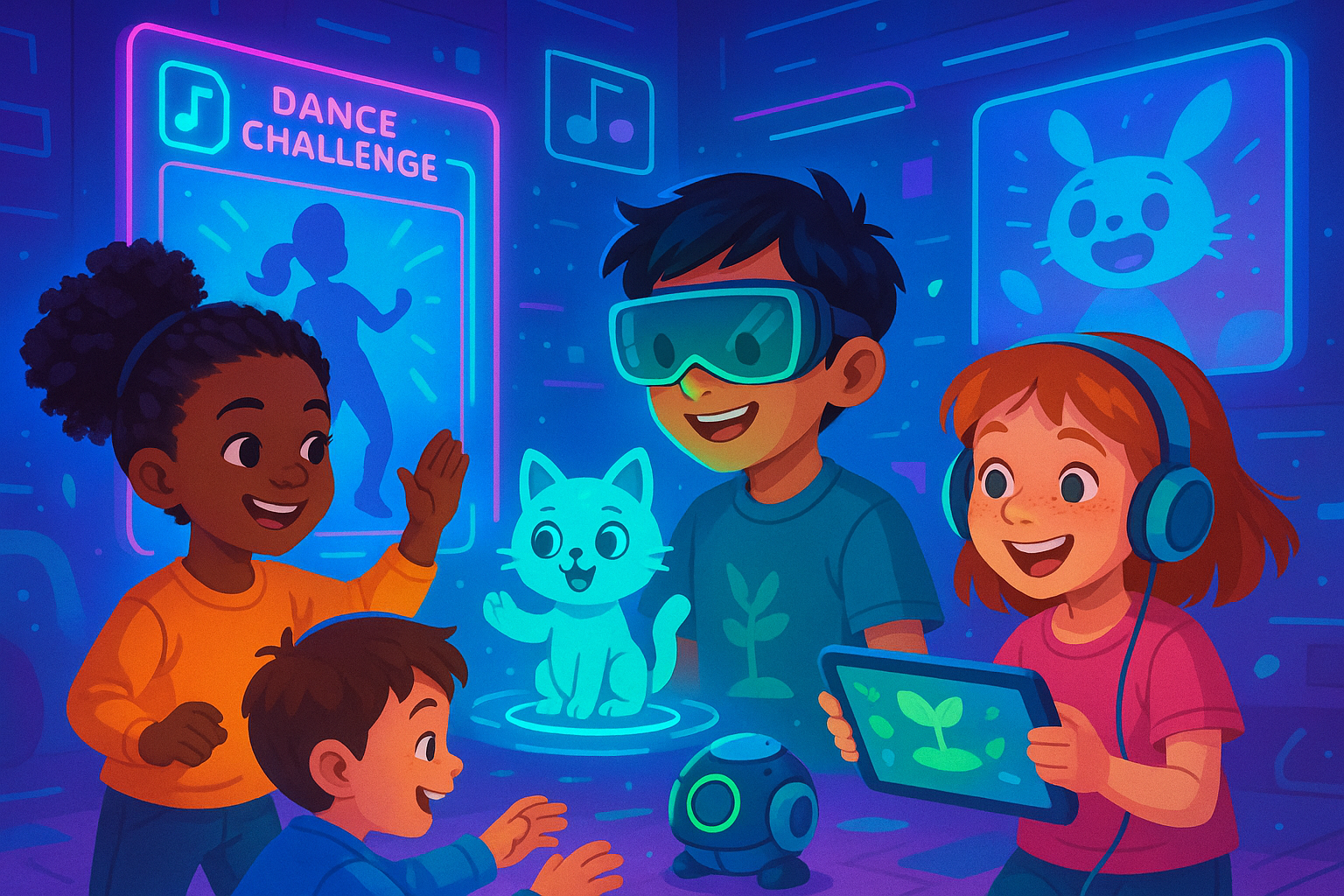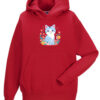Introduction
Pop culture plays a significant role in shaping the lives and identities of children today. From the clothes they wear to the shows they watch, children are constantly exposed to a wide range of cultural influences. As parents, it’s important to be aware of these trends and to understand their potential impact on our children. In this blog post, we’ll explore the ways in which popular culture can shape children’s values, beliefs, and behaviours, as well as the role of parents in guiding their children’s engagement with popular culture. We’ll also provide tips and strategies for parents to stay informed about popular culture trends and to help their children navigate them in a healthy and positive way.
The importance of understanding popular culture and trends for the children
Understanding popular culture and trends is important for children as it can help them navigate and make sense of the world around them. Popular culture, including the media, music, fashion, and social media, can influence children’s values, beliefs, and behaviors. It can also shape their understanding of what is considered “normal” or “popular” in society. Furthermore, understanding popular culture can also help children develop a sense of identity and belonging, as well as the ability to critically engage with the media they consume.
For parents, understanding popular culture and trends can also be important as it allows them to stay informed about what their children are exposed to and potentially guide them in making healthy and informed choices. Additionally, as trends and popular culture constantly change, it is important for parents to be aware of these changes in order to have open and meaningful conversations with their children.
The impact of popular cultures on children
The ways in which popular cultures can shape children’s values, beliefs and behaviours
- Socialization
Children often learn about social norms, values, and behaviors through the media and popular culture they consume. For example, through watching TV shows or movies, children may learn about gender roles, relationships, and societal expectations.
2. Identity formation
Children use popular culture to form their sense of self and identity. They may identify with certain characters, musicians, or celebrities, and use these figures as role models.
3. Consumerism
Children are often heavily targeted by advertisers and marketers, who use popular culture to promote consumerism and materialism. Children may develop a desire for the latest fashion trends, toys, and other consumer goods.
4. Media literacy
Exposure to a wide range of media and popular culture can help children develop critical thinking skills, media literacy, and the ability to analyze and evaluate the media they consume.
Highlight the potential positive and negative effects of popular culture on children
Positive effects:
- Exposes children to diversity and helps them understand and respect different cultures and perspectives.
- Provides opportunities for socialization and connection with peers.
- Can improve creativity, imagination and self-expression.
- Can educate and inform children on various topics, such as history, science, and current events.
Negative effects:
- Can encourage materialism and consumerism.
- Can promote negative stereotypes and biases.
- Can negatively impact children’s body image and self-esteem.
- Can expose children to inappropriate content such as violence, sex, and drugs.
- Can be a source of distractions and reduce time spent on more meaningful and educational activities.
Examples of popular culture trends that have been particularly influential for children
Some popular culture trends that have been particularly influential for children include:
- Social media platforms such as Instagram, Snapchat, and TikTok.
- YouTube, where children can watch various types of content such as vlogs, tutorials, and gaming videos.
- Video games, particularly those with multiplayer capabilities, which can be a source of entertainment and socialization for children.
- Streaming services like Netflix and Disney+, which offer a vast library of movies and TV shows.
- Music, including pop, hip hop, and rock, that can influence fashion, dance, and attitudes.
- Toy franchises, such as Lego and L.O.L. Surprise, that often have accompanying media and merchandise.
- Smartphone technology, which provides access to the internet, social media, and multimedia content.
The role of parents in navigating popular culture with children
Discuss the importance of parents being aware of popular culture trends and their impact on children
It is important for parents to be aware of popular culture trends and their impact on children for several reasons:
- Protection: Being aware of popular culture trends allows parents to identify and protect their children from harmful or inappropriate content. This can include exposure to violence, sexual content, or negative stereotypes. By being aware of the trends, parents can make informed decisions about the media and popular culture their children consume.
- Guidance: Popular culture can shape children’s values, beliefs, and behaviors, and parents play an important role in guiding their children’s engagement with it. By being aware of the trends, parents can help their children understand the messages and values conveyed in the media, and can provide guidance and context to help children evaluate and analyze the content they consume.
- Communication: Being aware of popular culture trends can also help to facilitate open and honest communication between parents and children. Parents can use their knowledge of the trends to initiate conversations with their children about the media and popular culture they consume, and can help children to express their thoughts, feelings, and questions about the media and popular culture they consume.
- Bonding: Being aware of popular culture trends can also provide opportunities for parents to bond with their children. Parents can share their own experiences and perspectives with their children, and can use their knowledge of the trends to connect with their children over common interests and experiences.
- Parental Control: Being aware of popular culture trends can also help parents in setting up controls to limit the amount of time and access to certain media or popular culture. They can also encourage their children to engage in other activities such as sports, reading, or spending time with friends and family.
It’s important to note that being aware of popular culture trends does not mean that parents should always restrict their children’s access to it, but rather it means that parents should be informed and be educated about the trends and their potential effects on children so that they can make informed decisions about their children’s media consumption.
Tips and strategies for parents to help guide their children’s engagement with popular culture
Here are some tips and strategies for parents to help guide their children’s engagement with popular culture:
Set limits on screen time:
Establishing clear boundaries and limits on the amount of time children spend consuming media and engaging with popular culture can help ensure that their engagement is healthy and balanced. Parents can set time limits on TV watching, video game playing, and social media use, and encourage children to engage in other activities such as sports, reading, or spending time with friends and family.
Discuss Media literacy:
Encourage children to be critical consumers of media and to develop media literacy skills. Parents can discuss the messages and values conveyed in the media, and help children evaluate and analyze the content they consume.
Monitor online activities:
With the increasing use of the internet and social media, it is important for parents to monitor their child’s online activities and to be aware of the sites and apps they use. Parents can use parental control settings on devices to block inappropriate content, and can talk to their children about online safety and privacy.
Be a role model:
As parents, it’s important to set a good example by consuming media and engaging with popular culture in a healthy and responsible way. Parents can also use their own engagement with popular culture as an opportunity to bond with their children and have open and meaningful conversations about the media they consume.
Encourage alternative forms of entertainment:
Encourage children to explore other forms of entertainment and activities that are not centered around screens. This can include sports, music, art, and other hobbies, which can provide children with a break from screens and can also help them develop new skills and interests such as:
Have open and honest conversations:
Encourage children to share their thoughts, feelings, and questions about the media and popular culture they consume. This can help to foster open and honest conversations about topics such as media representation, stereotypes, and values.
It’s important to remember that every child is unique, and what works for one child may not work for another. The key is to find a balance that works for your family, and to be open to making adjustments as your child’s needs and interests change over time.
Resources available for parents to stay informed about popular culture trends
There are many resources available for parents to stay informed about popular culture trends and to help them guide their children’s engagement with popular culture. Some of the resources that can be helpful include:
Parenting blogs: There are a number of parenting blogs that provide information, advice, and tips on a variety of topics related to parenting, including popular culture and media. Many of these blogs are written by experienced parents and experts in the field, and they can provide valuable insights and information on the latest trends and issues.
Parenting groups: Joining parenting groups, either online or in-person, can be a great way to connect with other parents and to get support and advice on a wide range of parenting issues. These groups can provide a forum for parents to share their experiences and to learn from one another.
Social Media: Following parenting influencers on social media platforms like Instagram, YouTube, and TikTok can be a great way to stay informed about popular culture trends and to get tips and strategies for parenting.
Research websites: Websites such as Common Sense Media, Parenting for the Digital Age and Media Smarts, offer resources for parents to stay informed about popular culture trends and to help them navigate the digital landscape, including apps, games, and social media.
Newsletters and e-mails: Many parenting websites, parenting experts, and organizations, offer newsletters or e-mails that provide information, tips and advice on parenting, including popular culture trends and media literacy.
Books: There are many books available on popular culture and media literacy, written by experts in the field, that can provide valuable insights and information for parents. The book titled “The Art of Screen Time: How your Family can Balance Digital Media And Real Life” and Popular Culture, New Media and Digital Literacy in Early Childhood can help you on this.
It’s important for parents to stay informed and to be proactive in guiding their children’s engagement with popular culture. By taking advantage of these resources and staying up-to-date on the latest trends and issues, parents can help ensure that their children’s engagement with popular culture is healthy and balanced.
Conclusion
Understanding popular culture and trends is important for children as it can shape their values, beliefs and behaviours. Parents play a crucial role in guiding their children’s engagement with popular culture by setting limits on screen time, discussing media literacy, monitoring online activities and staying informed about popular culture trends and their impact on children. There are several resources available for parents to stay informed about popular culture trends such as parenting blogs, parenting groups, social media, research websites, newsletters and e-mails, books, and experts in the field. Parents can use these resources to stay informed and to be proactive in guiding their children’s engagement with popular culture, ensuring that their children’s engagement with popular culture is healthy and balanced.







